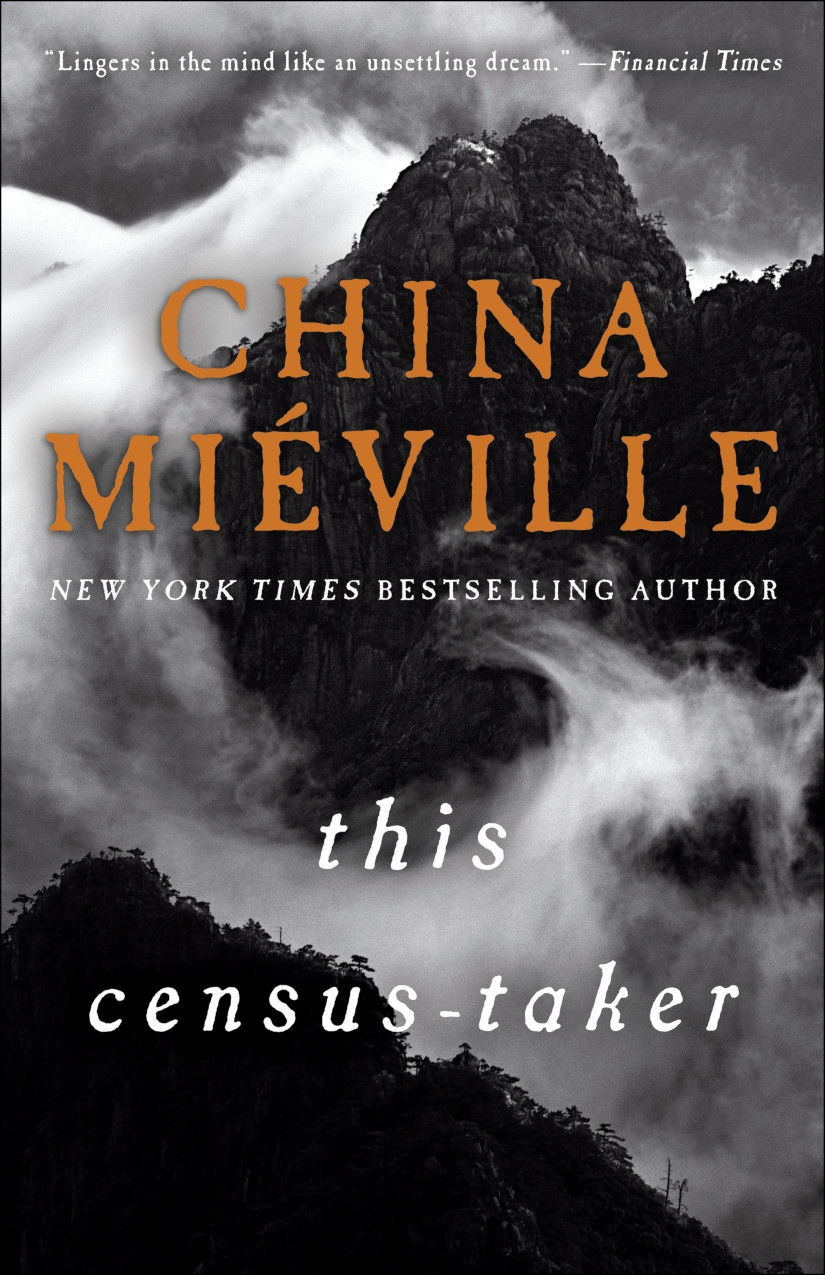Deus Ex Civil Servant
Wednesday, March 31, 2021 at 6:00am
Readers should be advised that this is a critique, not a review, and so it may contain plot spoilers.

In January 2016, China Miéville published a novella, and, being a big fan of Miéville’s work, I promptly ordered my copy (from the UK, of course). Once it arrived, I added it to my shelf, and it promptly sat there for over four years. I did, in fairness, make it through all of Miéville’s other novels in that time, all of them varying shades of “good” in quality, so I approached This, Census-Taker with more than a bit of personal reproach at having taken so long to get to it.
One of the things I love about Miéville’s style is the way in which he sharply differs from the popular modern style. The popular modern style is to hold the reader’s hand, carefully constructing the narrative so as to introduce the reader to the world’s fantastic elements so that none of them will cause the reader to have to do too much arduous thinking in order to figure out how the fantastic world’s social, physical, and metaphysical rules differ from the real world. Whereas most writers will drag you forward, clutching you at the wrist in an iron grip, Miéville pushes you right into the ocean and expects you to swim. The first third of a Miéville novel is usually a disorienting, intellectually taxing experience, but one which is ultimately so rewarding that the effort feels more than worth the exertion. He executed this flawlessly for nine novels straight, from King Rat through Railsea.
Miéville attempts the same thing in This, Census-Taker, but here it falls flat. I realized, as I made it further and further through the novella, that one of the crucial elements for the “push the reader into the ocean” approach was that the ocean needed to be vast and complex. The reward for learning to swim was a strange and fantastic wonderland. I might have had some minor gripes about how I felt Iron Council depicted communism as something worth striving for, or how Kraken juxtaposed religion and science in way that I felt was somewhat disingenuous. However, there was no doubt as to the vast and vivid complexity of those novels, and perhaps more impressively, how the complex mesh of details all felt as though it fit together, in each of nine hefty novels.
Unfortunately for This, Census-Taker, I can summarize its “complexity” in a single sentence: the protagonist’s father can make keys that we can infer are magical (we never see them being used). That is all. The setting is a mundane, pseudo-nineteenth century town in a nondescript invented world with all the same animals, plants, and laws of physics as planet Earth. And so, all of my disorientation and struggle through the first forty pages of the novella were rewarded not with thaumaturgy, or cactus people, or demonic smog, or aliens with two mouths and a dual-vocal stream language, but with… maybe-magic keys. That the reader never sees used.
This could maybe be forgiven if the protagonist were compelling and his character arc depicted some insight into the human condition. At least then, I could call the novella successful literature if not successful speculative fiction. Unfortunately, I cannot make that claim either.
The main conflict of the novel is that the protagonist, a young boy, has run into town claiming that his father has killed his mother. The father arrives in town and contradicts the boy’s report. He then produces a letter from the mother saying she is abandoning the family. The boy tries desperately to get the villagers to believe his version, but ultimately the authorities side with the father. The boy must then cope with his father’s increasingly erratic behavior and the fear that his father’s next violent outburst might target him.
In the final fifteen pages of the novella, a census-taker shows up and takes the boy away from his father. The boy does not do anything in particular to enlist the census taker’s help. In fact, the boy’s missing mother only comes up as a part of the census-taking. The census-taker has no special powers of insight, no particular intelligence, charisma, or character. He shows up to take the census, and he takes the boy away instead. End of story.
Nothing about this story seems to work. It feels as though Miéville was trying to do something concise and subtle, something that constituted a brand new spin on his “usual,” because, even if the whole “push the reader into the ocean and expect them to swim” thing is something that most writers don’t do, once a writer has done it nine times, perhaps it would start to feel as though it needed shaking up a bit. Perhaps it had started to feel like a formula. That may or may not be the case. Personally, I am happy to immerse myself in as many wildly fantastic, sprawling, vividly imagined worlds as Miéville can invent. Formula or not, in order for the signature disorientation and immersion-sans-exposition style to work, the pay off had better worth the reader’s investment. Maybe-magic keys were decidedly not.









